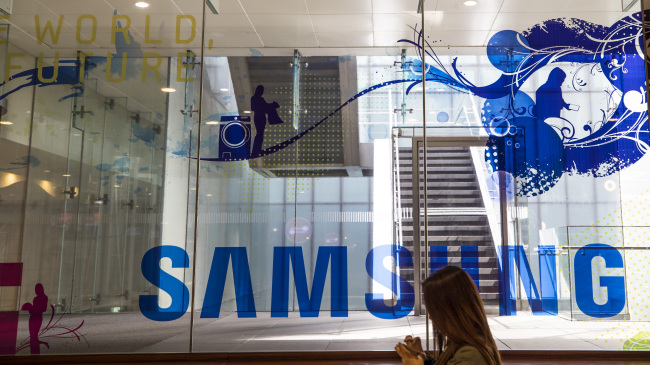Samsung Electronics on Friday reported higher-than-projected earnings during the first quarter, with operating profit topping market expectations by around 1 trillion won on successful memory chip sales.
Operating profit in the January-March period likely jumped 57.58 percent on-year to 15.6 trillion won ($14.6 billion), while revenue was estimated to have increased by 18.69 percent on-year to 60 trillion won, the South Korean tech giant said in an earnings guidance report.
 |
(Yonhap) |
Samsung did not release performance and net profit estimate reports for each business division. It plans to disclose detailed earnings later this month.
The tech giant’s earnings guidance tops projections by FnGuide, a Seoul-based financial market provider, that Samsung would log an operating profit of 14.56 trillion won and revenue of 61.58 trillion won.
Market analysts had predicted that despite a strong performance by its main semiconductors business, the gains would be offset by losses linked to a downturn of the display business led by sluggish sales of Apple’s iPhone X made with Samsung-made OLED displays.
However, Samsung’s first-quarter earnings guidance has eased such concerns, as demand for Samsung-made memory chips appears to have been strong enough to set the Korean electronics maker on track for another profitable year.
Memory chips are expected to have accounted for about 70 percent of Samsung’s operating profit, as strong demand for DRAM chips used in computer servers offsets falling prices of NAND flash memory chips, according to market projections.
Samsung’s IT mobile communications business -- pulled along by the early release of premium Galaxy S9 and healthy sales of older models -- appears to have contributed to the first-quarter earnings as well, overcoming a slowdown in global smartphone sales, analysts said.
The Galaxy S9, which began selling in most markets from mid-March, was launched around one month than its predecessor S8 which begun sales from mid-April back in 2017.
According to market tracker IDC, worldwide smartphone shipments shrank for the first time in 2017, as customers were less likely to purchase the latest high-end devices due to the high price tags and slowing innovation.
By Sohn Ji-young (
jys@heraldcorp.com)








